“Best Stainable Wood Filler,” from a DM to some research to some rabbit trailing, I came on this query. Let’s take a look at the #1 result…
And, an interesting tidbit, it’s the SAME result as before the HCU… What can we learn? 👀👇
So, the #1 result is a DR 39 site. At first glance, I would call it a “niche site” But more on that later. Let’s look at the URL that’s got the top ranking spot
We consult with websites large and small on how to improve their sites to gain more traffic and money. Interested in learning more? Take a look at our Website Reviews!
Quick Navigation
Using an Experience Article Title
The title is “An Experiment to Find the BEST Stainable Wood Filler.” A twist on the classic “Best X” title, clearly showcases experience by using the word “Experiment.” Strongly implies testing went into the article.
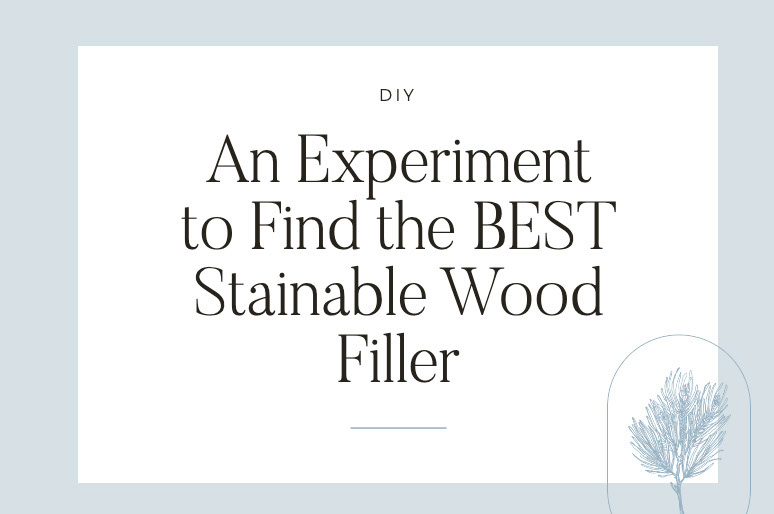
Using Unique Images
Next, we see a big, unique image. Full of various products, stacked and sorted. Simple photo but nicely done. Good lighting, blurred background Would have preferred to see some hands in the pic, to further imply using. But compelling nonetheless.
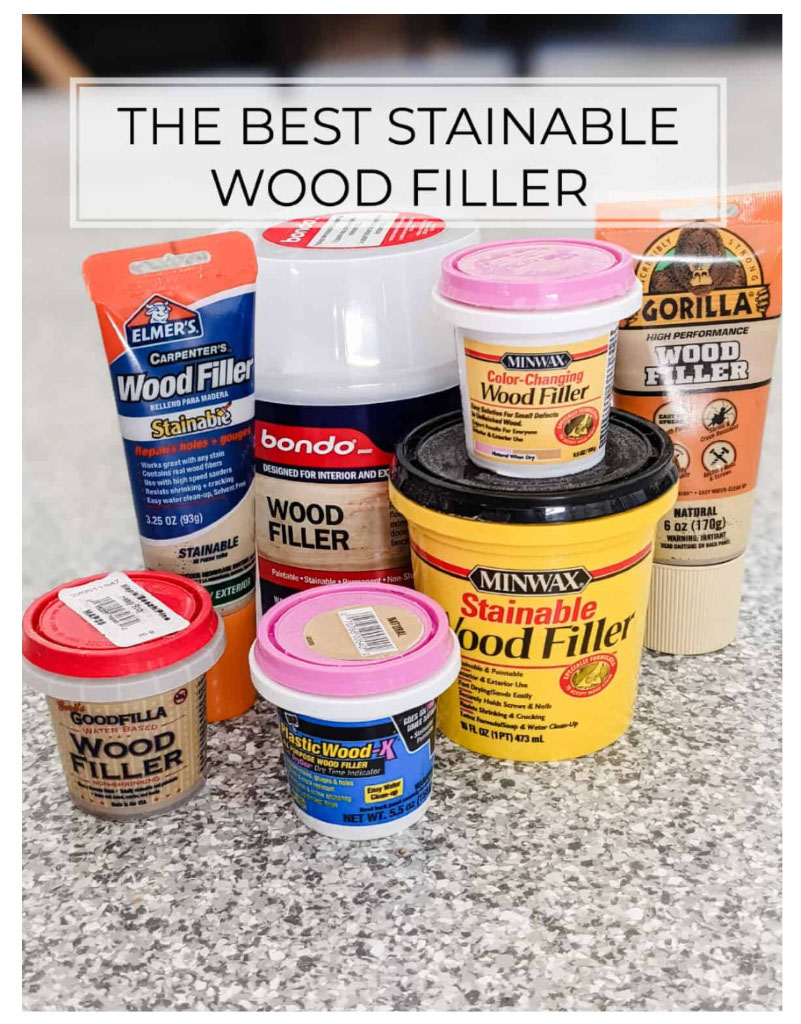
Unique Article Content Structure
Next, the article does NOT get straight into the best product. Does NOT put a big affiliate link and buy button. It answers the question, “Is Wood Filler Stainable?” The answer is quick, helpful, and to the point.
“The short answer is yes. You’ll need to check your particular wood filler packaging to see if it says it’s stainable, but 99% of wood fillers are stainable.”
Next, we get a brief disclaimer about how they came to determine the best filler:
“We decided to put 7 popular wood fillers to the test to determine which was the best. Best overall and in terms of how well the wood filler stains on both oak and pine lumber. “
Before moving on, noticed that they have a CTA for their free guide… pushing people to an email list.
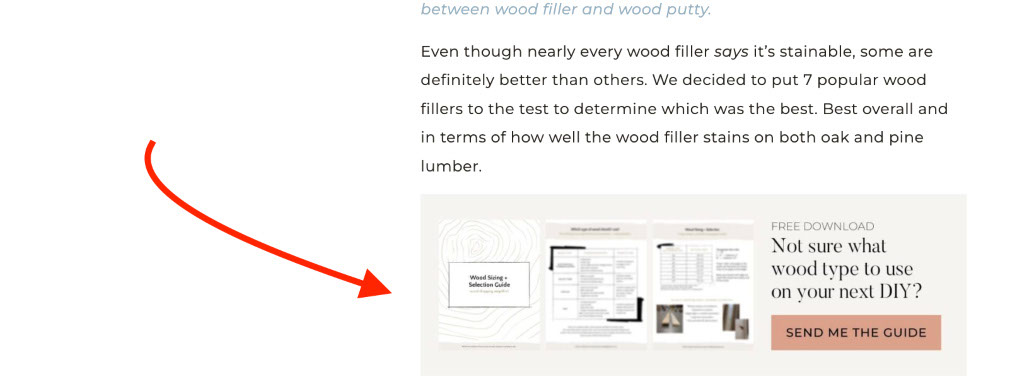
Product Recommendation Presentation
Now, finally, we get into the best option. It’s presented with a clear paragraph. Text affiliate link, no product box.
And then on the article goes to break the best options down by category. Certainly not what we’ve come to expect when presenting affiliate links…
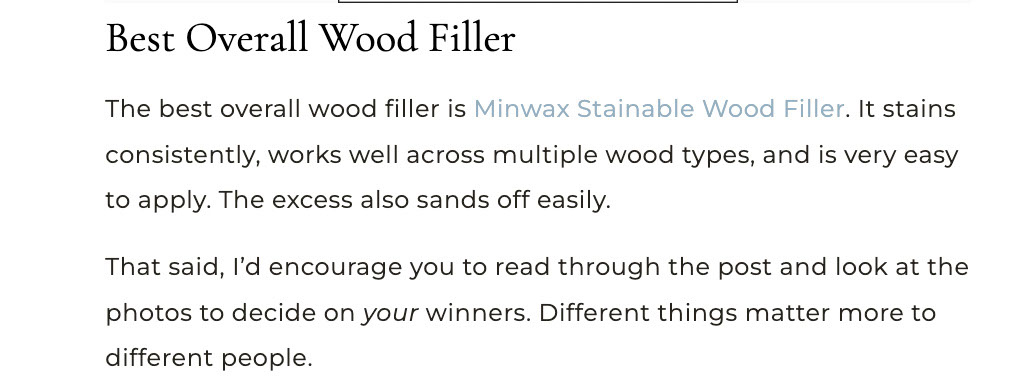
Attaching Informative Data and Images
Deeping into the article, it becomes SO clear that they have tested all 7 different wood fillers. They show us before and after pictures. All told, I count 22 unique images in the article…
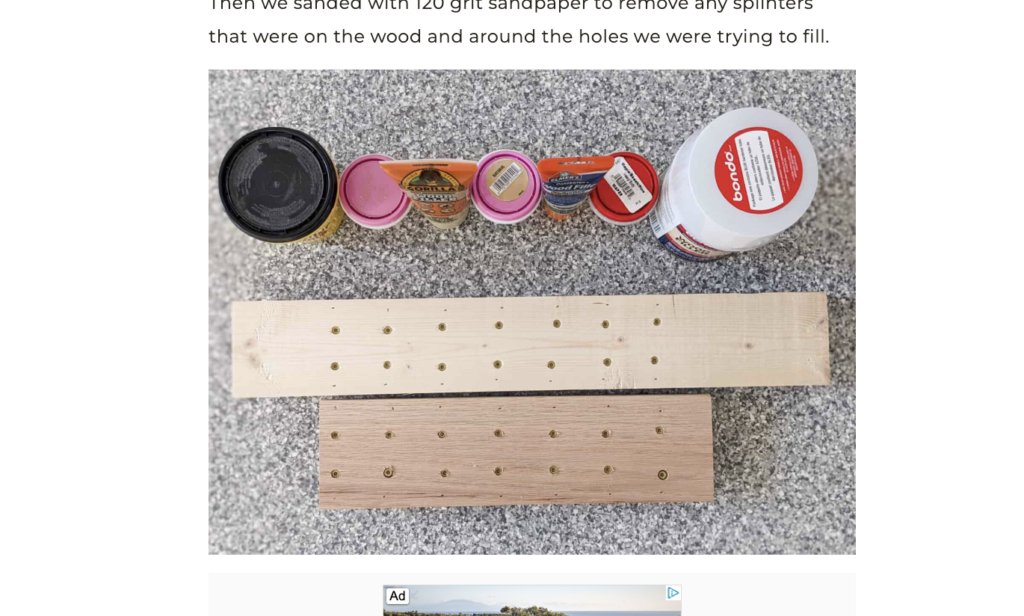
They clearly explain how they tested.
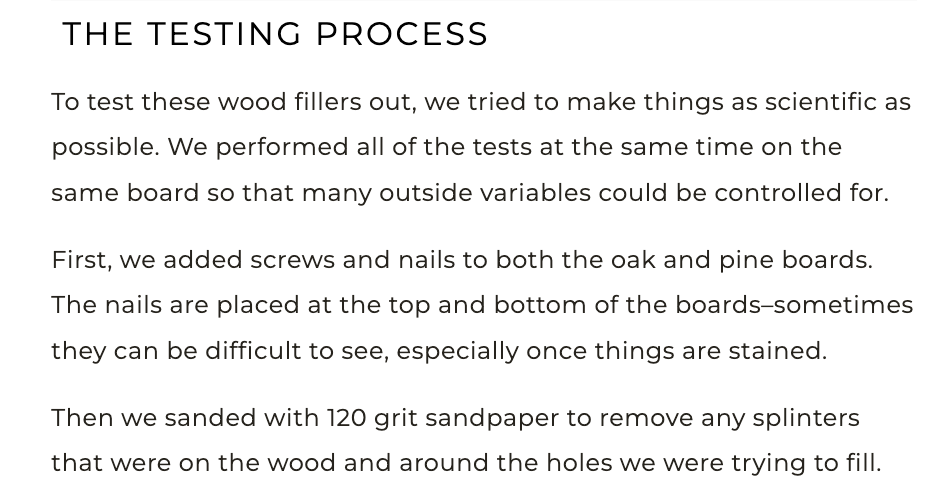
This URL seems to be a clear example of what Google wants from the HCU.
Courses and Downloadable Guides
Let’s look at the website overall 👇
A lot has been made of having a “Brand” rather than a Niche Site. The Pine and Poplar home page has clear indications that it is a “business.” The site sells courses and provides free downloadable guides.
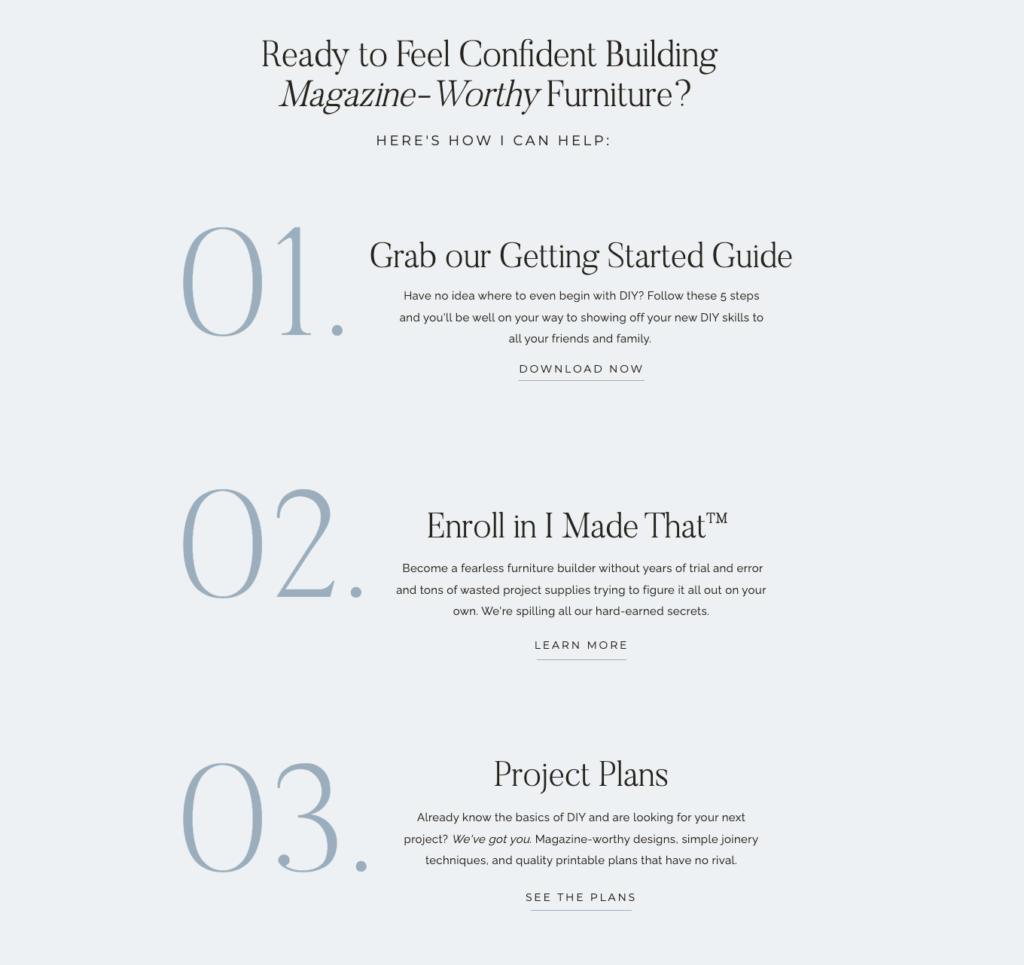
Navigationally, their menu has:
🔸Courses
🔸Shop
🔸Log in

The About page is easy to find. First off, features a big image of the site owner.
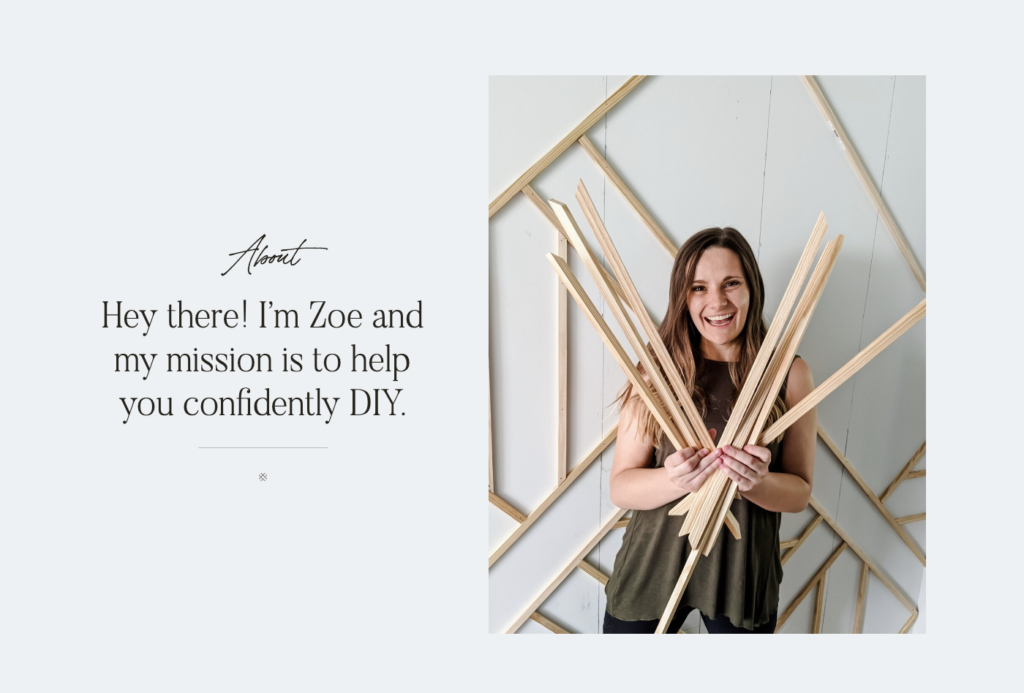
Beyond that, it reads as just an origin story and “get to know the founder.”No SEO focus on building EEAT. No mentions of big features in publications.
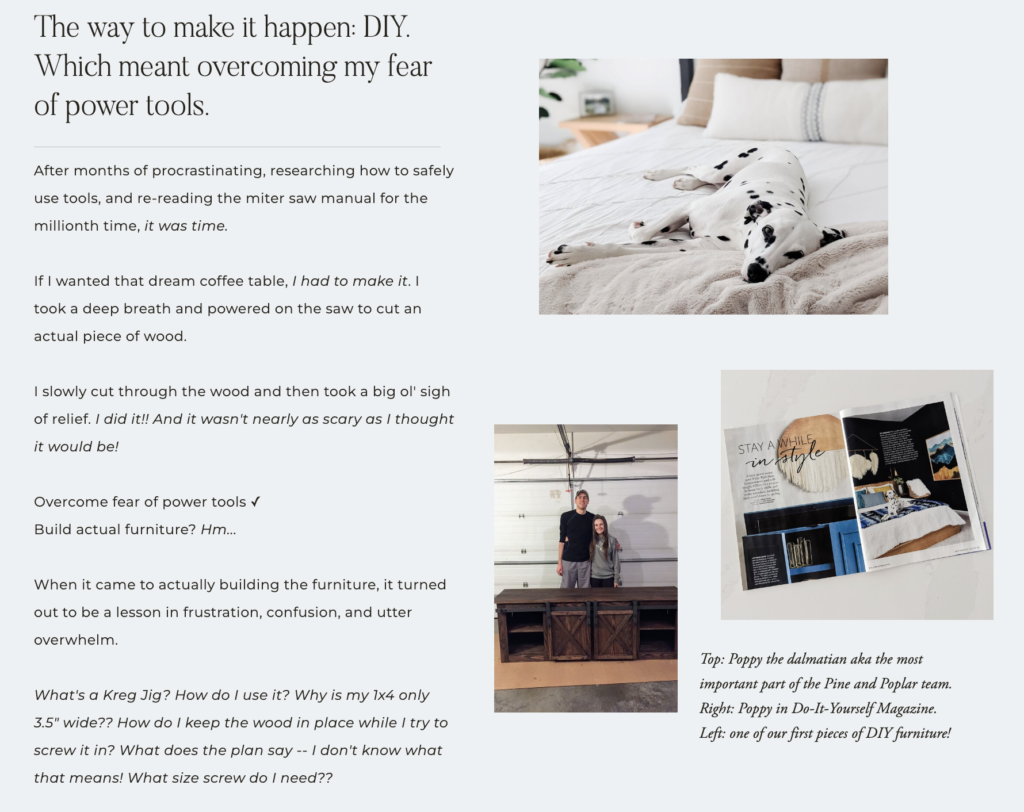
Establishing a Strong Social Media Presence
When it comes to socials, they have almost 400k followers on Instagram. Only 317 posts too…

Recap
Alright, I’ll stop there.
So, some thoughts on the buying guide:
🔸Buying Guide clearly doesn’t follow standard “SEO” approach
🔸Clearly showcases experience on the topic, from title to imagery to process explained
And some thoughts on the overall site:
🔸Site is a business, selling courses and downloadables
🔸Active and popular on social media
🔸Clearly displayed an active owner on About page
Now, let’s be clear about a few things I see as negative:
🔸Heavy display ads
🔸Scripty font can be hard to read
🔸Copyright out of date
🔸Barely passing CWV
And don’t get me started on the redirected domains. And, this site DID see drops from the HCU!
Almost 25%, according to Ahrefs. But this article did just fine.

This tweet is only to share an example of a site and URL that WAS ranking #1 for an affiliate keyword before the HCU. And is STILL ranking #1 after the HCU for the affiliate keyword. This example does not express any opinions on my part.
I’m not telling you what you should do now. Just sharing observations from what I’m seeing. What would you take from this example, as it relates to niche sites, and websites trying to rank content?

